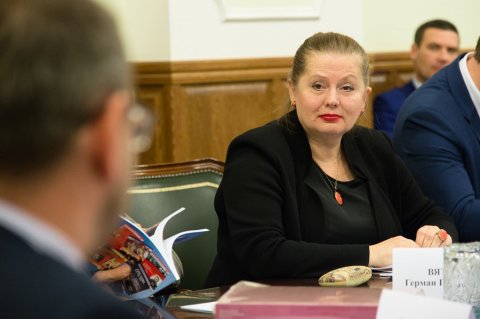Russian Cultural Workers Day is celebrated on March 25th every year. This professional holiday is for people involved in culture and arts, people in artistic professions, and those who preserve and popularize cultural legacy.
Professor of the SUSU Department of Theology, Culture and Art Natalya Parfentyeva shares on what role culture plays for her, what modern youth lacks, and how culture develops among SUSU students.
– What role does culture play for you?
‒ I worked as a teacher since the age of 19, then I was a school principal, and I headed the Chelyabinsk City Department of Culture from 1992 to 1997. Culture is something only humans have; what defines their attitude towards the world. Without culture, as a productive, creative partnership of man and society, the progressive evolution would not be possible. The system of institutions of culture, education and art, is the basis upon which individuals form their connection with the great achievements of humanity.
– How is culture developed among SUSU students?
‒ SUSU has deep traditions of providing cultural education for students. We have Creativity Center for Youth, Student Philharmonic, Arts Hall, Virtual Branch of the State Russian Museum, Mannequin Studio Theatre, Television Center, Research Library, and others. The university’s museum complex is something we are especially proud of. It includes: History Museum, Rocket and Space Technology Education Center named after V.P. Makeyev, Museum of Peoples and Technologies of the Ural Region (archaeological museum), Art Museum, Educational Geological Museum, and more. All of this is in the infrastructure of SUSU as participant of federal program 5-100, the goal of which is Russian universities entering the rankings of the world’s top universities, and it supports students’ forming a bond with regional and national achievements, allows students to come to understand their involvement in international community, and forms their cultural identity.
– What does today’s youth lack in modern culture?
‒ They lack understanding of the fact that the goal of mass culture, mostly, is to enrich its creators, and the goal of democratic culture is moral improvement and creative development of free individuals. Reaching this goal requires huge effort, and not everyone is ready for it.
– How does Russian culture differ from the Western and European ones?
‒ Our communicative space is largely filled with the spirit of “cultural conservatism” – preserving national legacy and referring to historically pre-existing cultural traditions. That’s how I see it. American culture is younger and more tolerant, but they also value historical memory there.
– Do you celebrate any professional holidays?
‒ Yes, I do. March 25th is Culture Day. I will be celebrating it with my colleagues. Traditionally, the staff of the Department of Culture of the city Administration invite me to the Golden Lyre event on March 26th.




